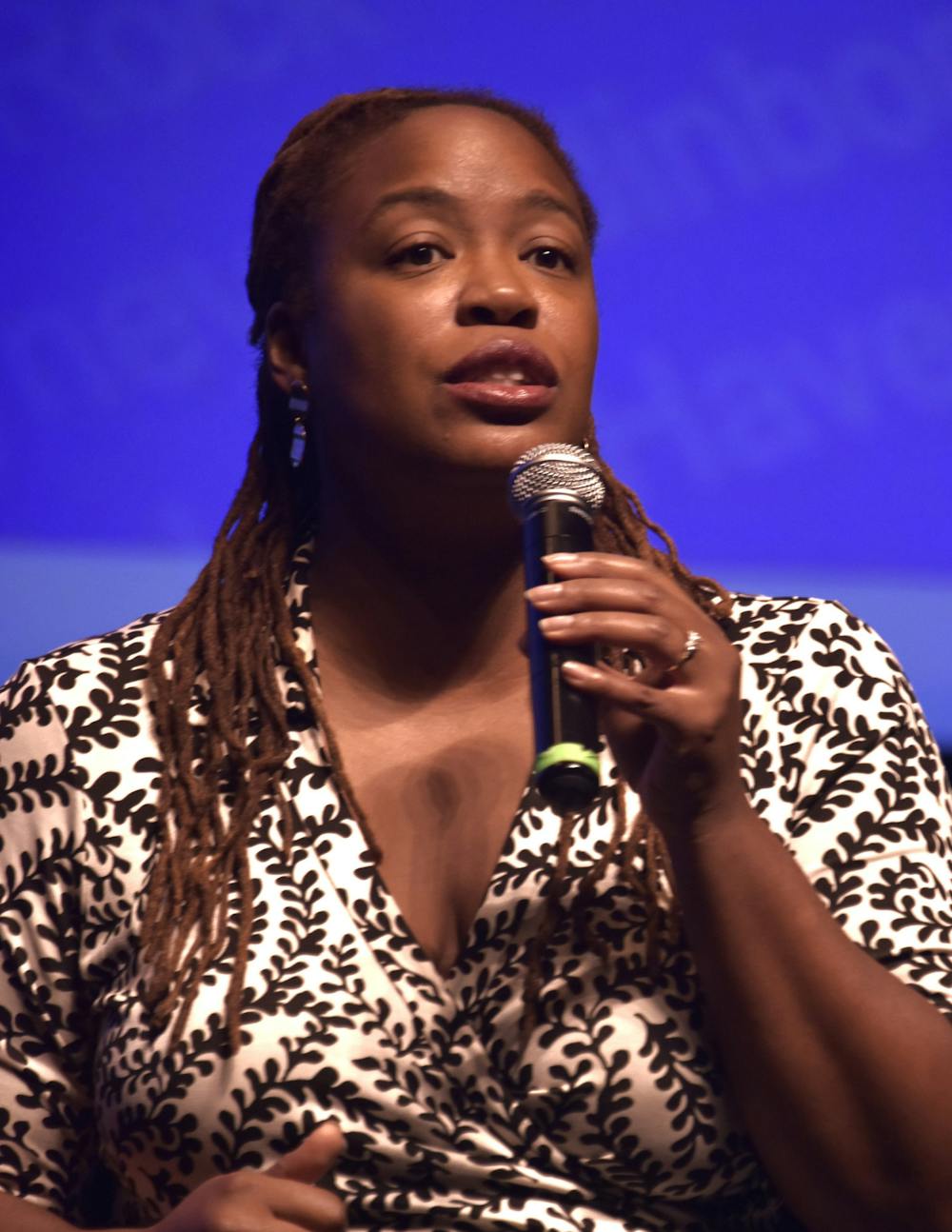Author and public policy expert Heather McGhee delivered the keynote address at the second annual Pennsylvania State System of Higher Education (PASSHE) DEI Summit at Shippensburg University.
McGhee has spent decades in the political and public policy worlds, but is most recognized for her viral 2019 TED Talk, “Racism has a cost for everyone,” and her New York Times bestseller “The Sum of Us,” which has been described as “required reading to move the country forward.”
“The Sum of Us” centers arounds McGhee’s belief that economic prosperity for all is not a zero-sum game. In other words, gains for Americans of color does not mean automatic losses for White Americans. One of McGhee’s three core insights that she shared during her address was the fact that “collective economic progress is held back” by the zero-sum mentality, which White Americans are more likely to have.
“There is no relationship between the melanin content in your skin and the ability to see things through a zero-sum lens,” McGhee said.
McGhee shared that the economic divide between Black and White Americans has cost the country nearly $16 trillion in economic growth. McGhee used a sports analogy to compare the millions of oppressed people in this country to “sidelined players” who could help get more points, or economic stimulation, on the board.
In one of the more stunning statistics cited in her address, McGhee said families of color have an average of 15 cents for every dollar that White families have. Additionally, the average Black college graduate has less wealth than a White college dropout, she said.
And wealth is not referring to what is written on your paycheck. McGhee’s mantra, if you will, is “wealth is where history shows up in your wallet.”
One of the interwoven themes in McGhee’s address and “The Sum of Us” is the concept of “drained-pool politics.” McGhee tells the story of a public pool in Montgomery, Alabama, that was shut down in 1959 after its policies were deemed racially exclusionary. Rather than integrate the public pool system, the city of Montgomery drained the pool, filled it with dirt and shut down the entire recreation department for nearly a decade.
McGhee noted that a lasting impact of this decision was the boom of the private backyard pool industry.
“They turned their back on public goods,” McGhee said. “It was worth it to pay privately for what we used to have publicly.”
Robust public pools, as well as larger institutional concepts like affordable housing, universal childcare and well-funded public schools all led McGhee to ask, “Why can’t we have nice things?”
That question is what led McGhee on a cross-country journey to explore communities that have come together across racial lines to find solutions. In the trailer for the 2022 podcast adaptation of “The Sum of Us,” McGhee said, “It wasn’t that we didn’t have the solutions. It’s that we couldn’t come together to fight for them.”
McGhee touched on a number of other socioeconomic topics during her address. Further information can be found in McGhee’s appearances on The Daily Show, CNN, Armchair Expert and Real Time with Bill Maher. “The Sum of Us” is available wherever books are sold, and the podcast adaptation is available on Spotify.





The Slate welcomes thoughtful discussion on all of our stories, but please keep comments civil and on-topic. Read our full guidelines here.